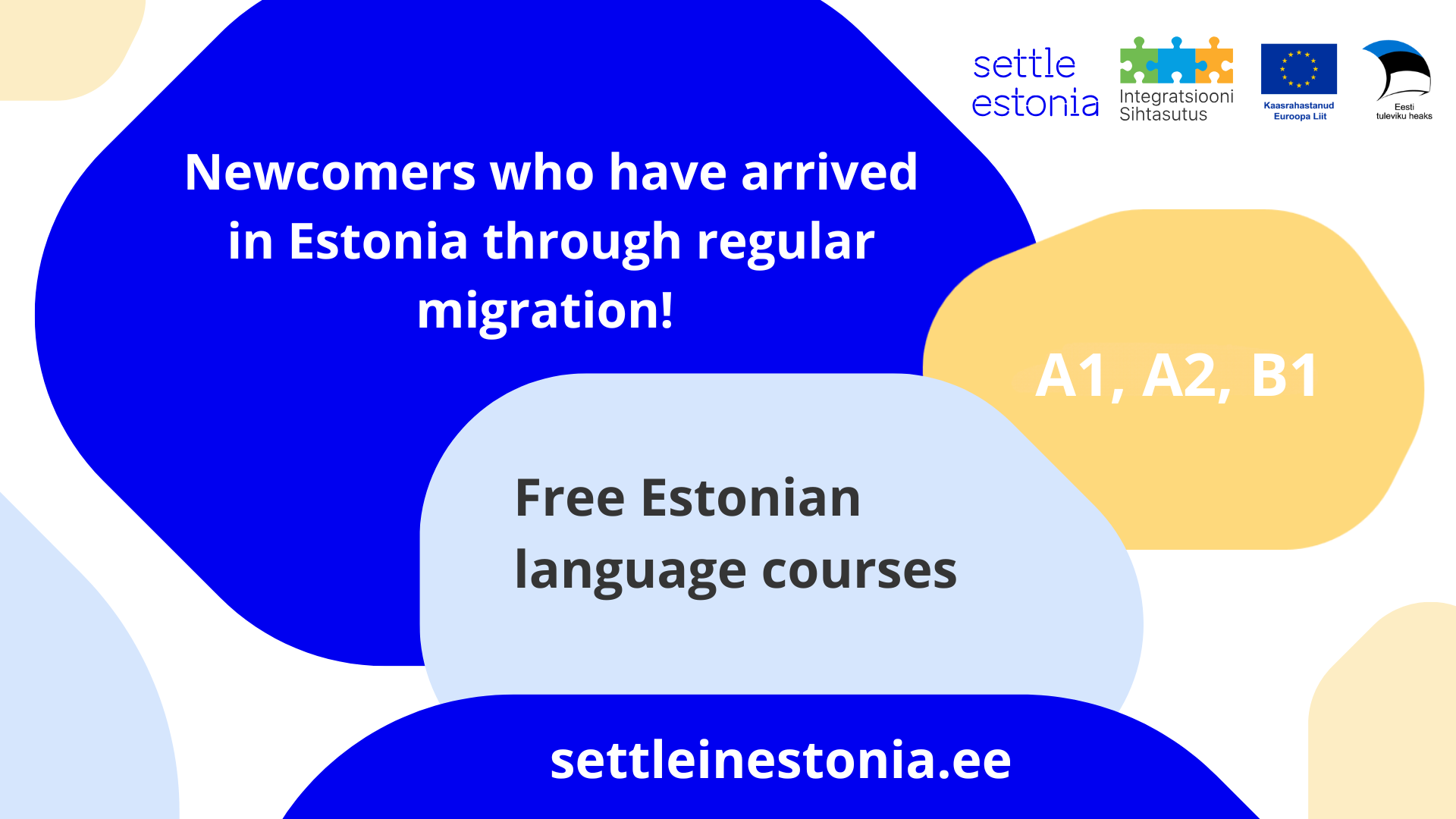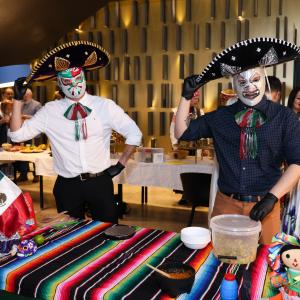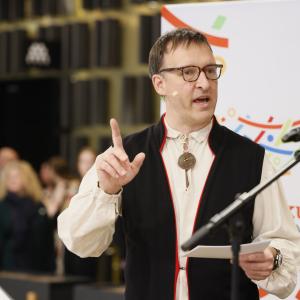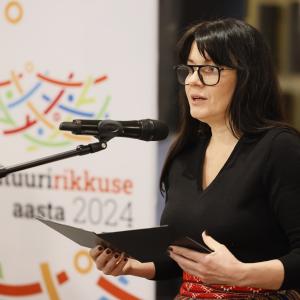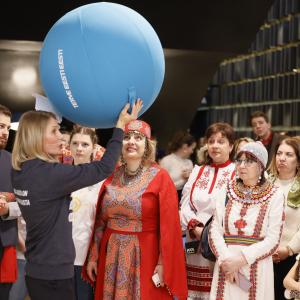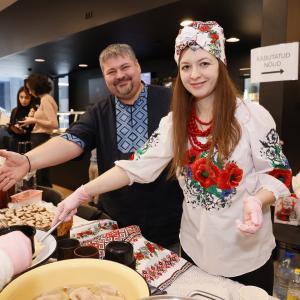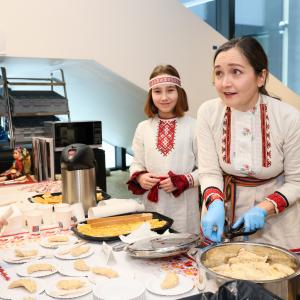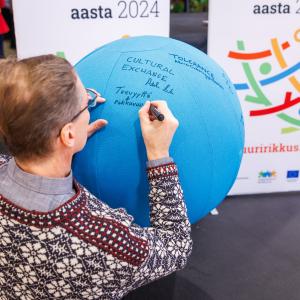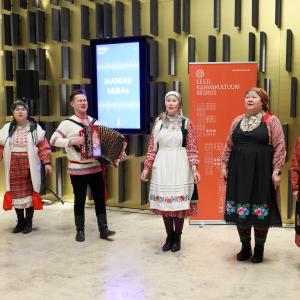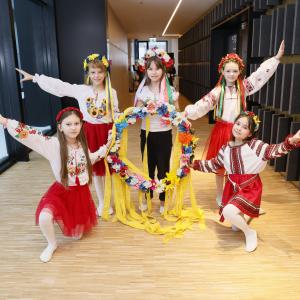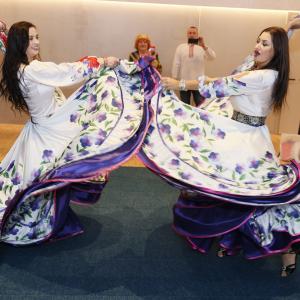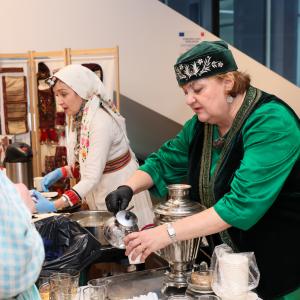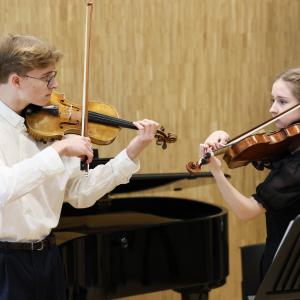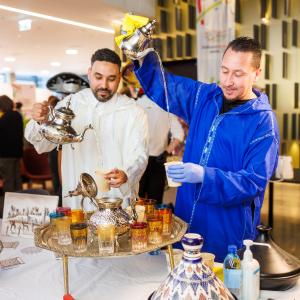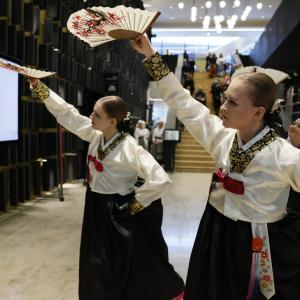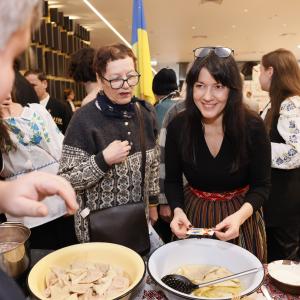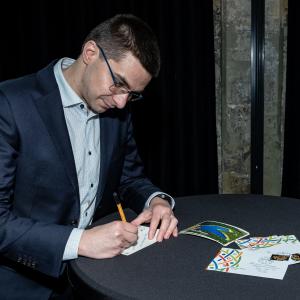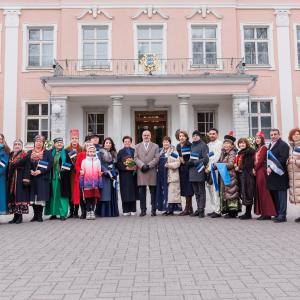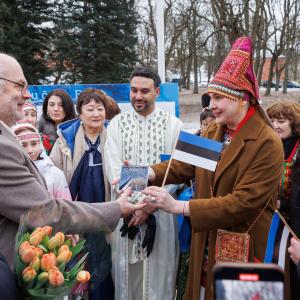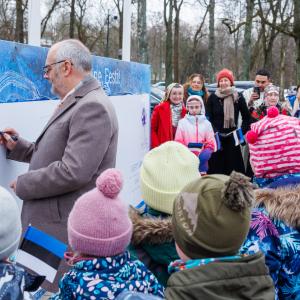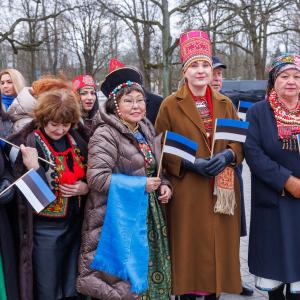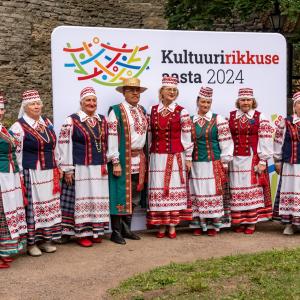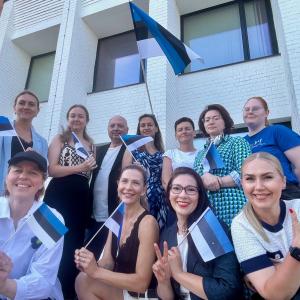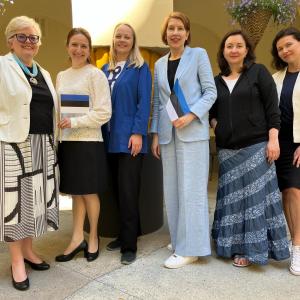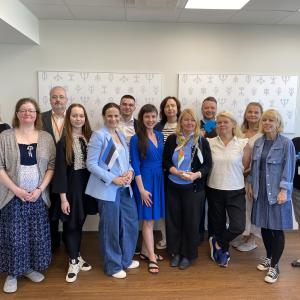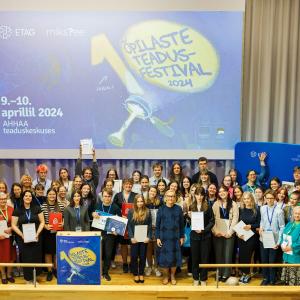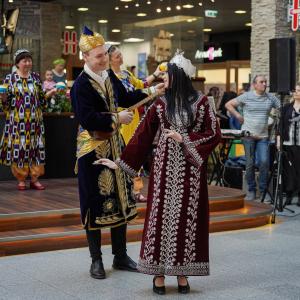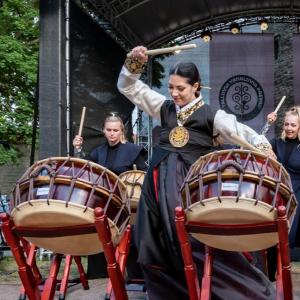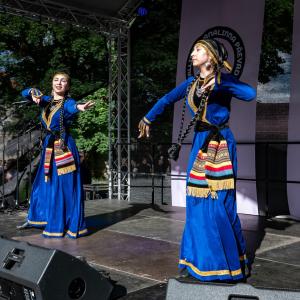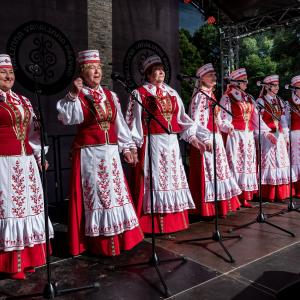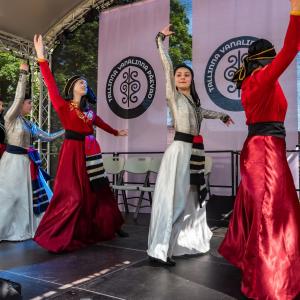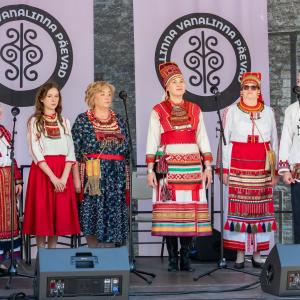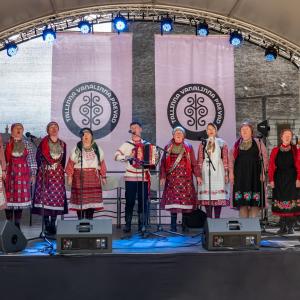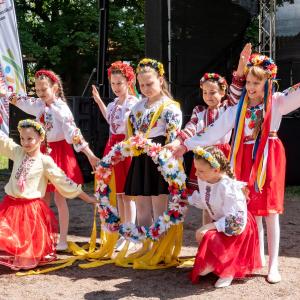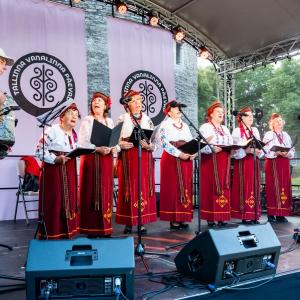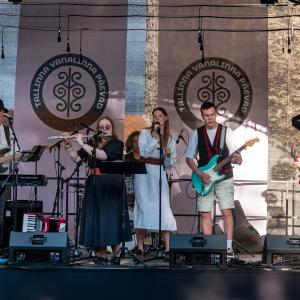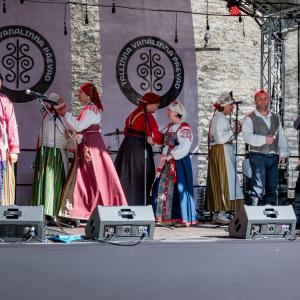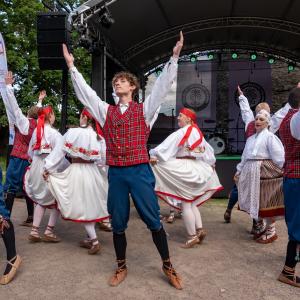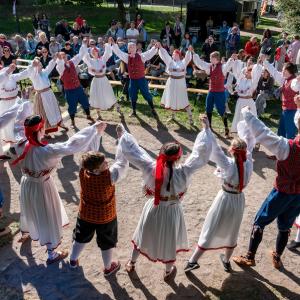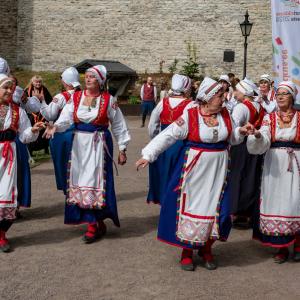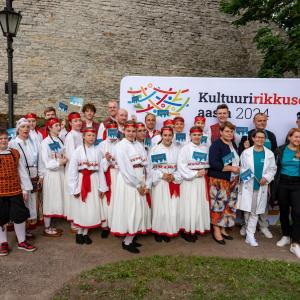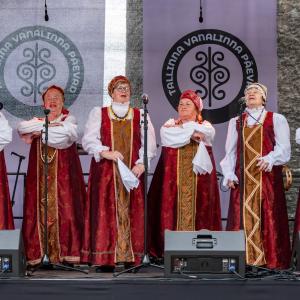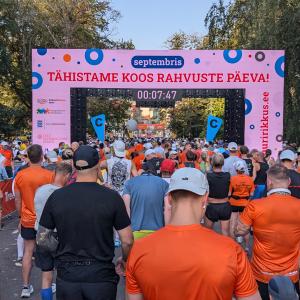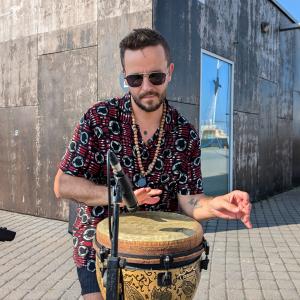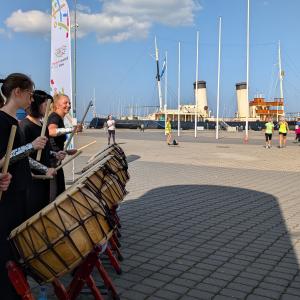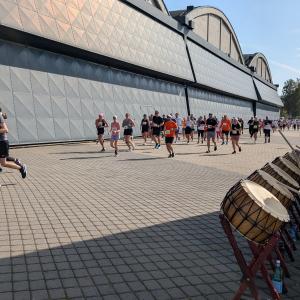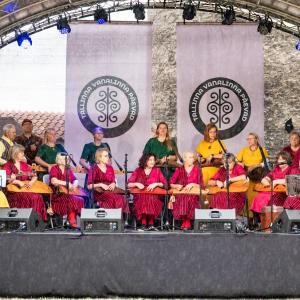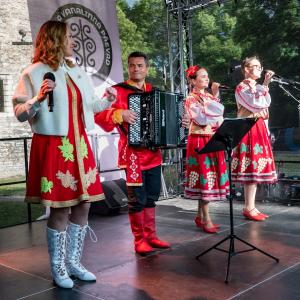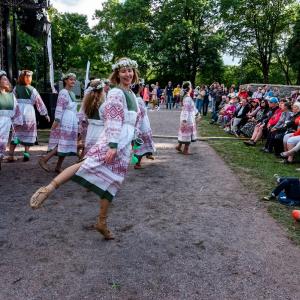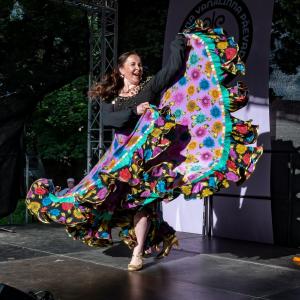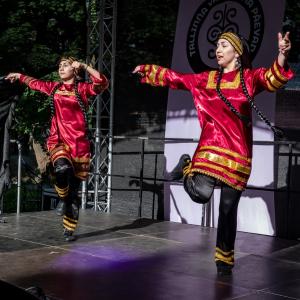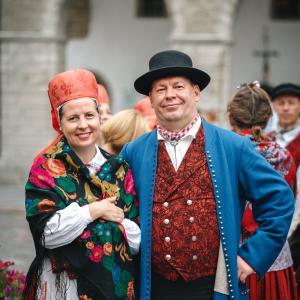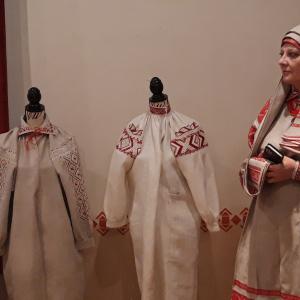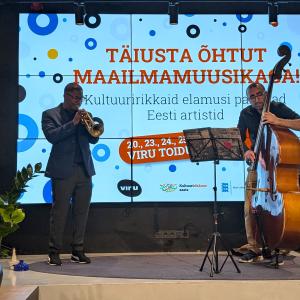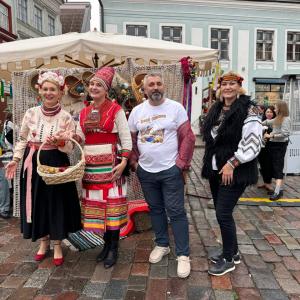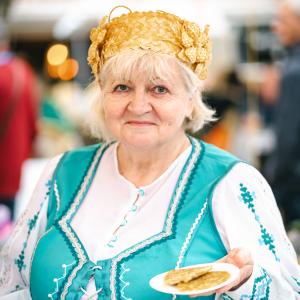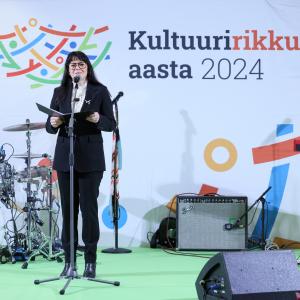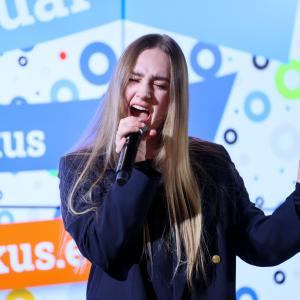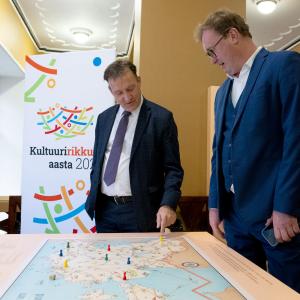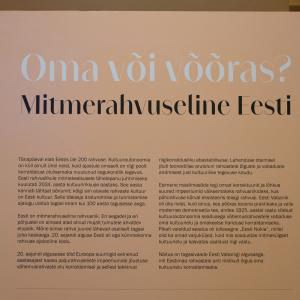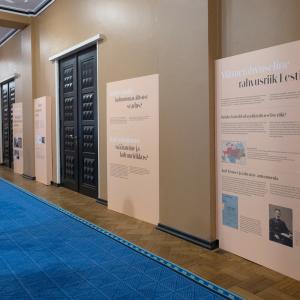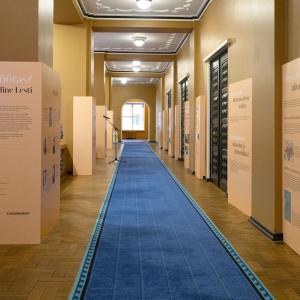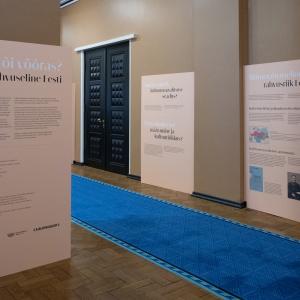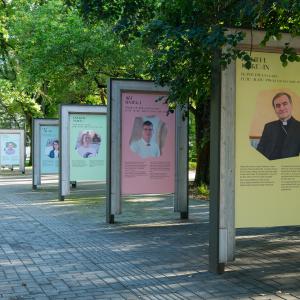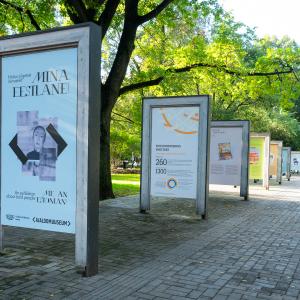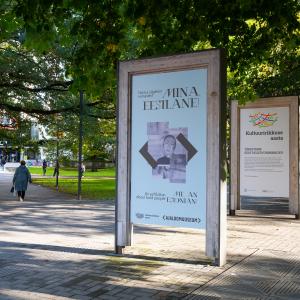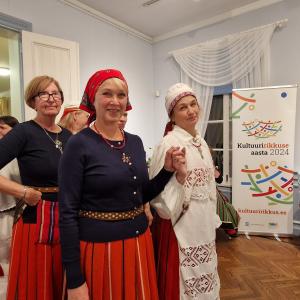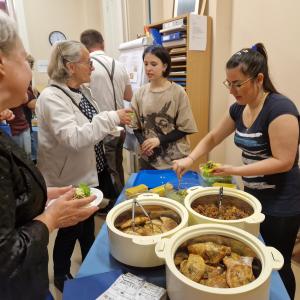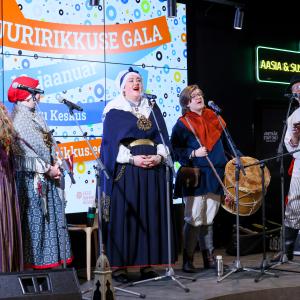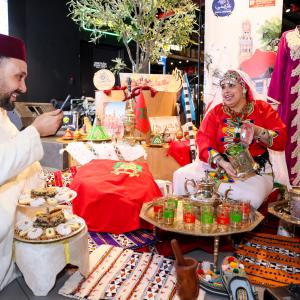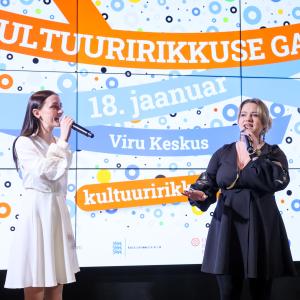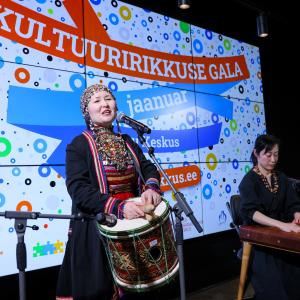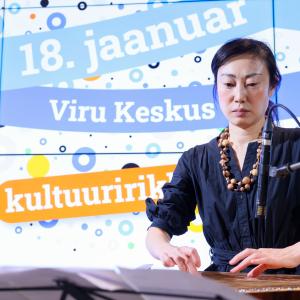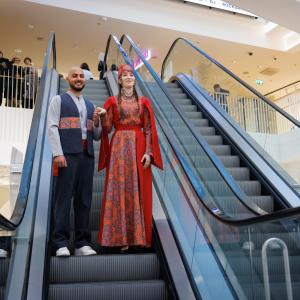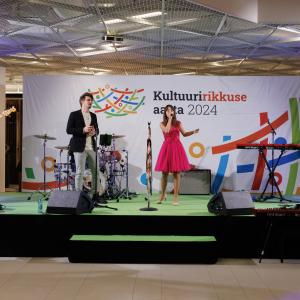We took a look back with Eero Rauna, project manager of the theme year, and Alena Stadnik, information specialist, to see what was achieved, and analyse the legacy of the theme year.
What did you set out to do and what did you do?
Our aim was to reach out to Estonian and other ethnic communities to highlight their cultural diversity and bring them together for cooperation. We aimed to strengthen attitudes – to make Estonian people more aware of and value Estonia as a traditionally culturally diverse society. The Cultural Diversity Year has given us a reason to acknowledge that Estonia is already home to 217 different nationalities with a total of 260 different mother tongues.
We brought people together, gave them the opportunity to get to know each other and work together. Networking has provided a larger platform of support to promote the traditions and cultural events of different communities. Without exaggeration, we can say that the theme year brought joy to thousands of people all over Estonia. Estonia is culturally diverse.
What were the most memorable events that took place during the Cultural Diversity Year?
Of course, there were plenty of memorable moments – the calendar of events for the theme year ended up with around a thousand different activities. What was particularly encouraging was that different communities increasingly took the initiative to create events themselves. We took the various events of the theme year to all counties across Estonia on three occasions, in coordination and on the same day – the opening event last January, the Day of Nationalities in September, and the Open Cultural Societies Day in October. We contributed to these events with logistics, marketing, and funding. However, the events were largely organised by the local people in the counties themselves, bringing their own ideas and energy – and a willingness to find new partners from elsewhere in Estonia as well as from their home counties, for example, from minority cultural associations.
Together, we concluded the year with a spectacular Cultural Diversity Gala, which was held this January in Viru Keskus. Traditional events, such as the Ethno Fair, a cultural event organised jointly by ethnic minority cultural associations in the Town Hall Square of Tallinn, attracted more attention than in the past. In cooperation with the Tallinn City Centre Government, we organised a cultural diversity stage at the Tallinn Old Town Days, where you could hear and see the ethnically colourful song and dance culture of different communities.
On the initiative of the Estonian Union of National Minorities, a proposal was made to the Riigikogu in September to celebrate the Day of Nationalities as a flag flying day. The proposal is currently being discussed by the Constitutional Committee of the Riigikogu. The Day of Nationalities is dedicated to the appreciation of both the Estonian and other nationalities living in Estonia. For example, the Finno-Ugric Day, which has already been proclaimed as a flag flying day, only concerns Finno-Ugric peoples, but the number of nationalities represented in Estonia has grown rapidly.
In cooperation with the Association of Estonian Cultural Societies, we organised an Open Cultural Societies Day on 19 October, once again in all counties of Estonia. Among the partners were also the Association of Estonian Community Centres and the Estonian Folk Art and Craft Union. The aim of the event was to raise awareness of the cultural societies active in Estonia, their activities, and their role in society.
The ability to cooperate systematically and to find new partners is both a constant focus of development for the theme year, and on the other hand, a great way to gain more attention and reach as many target groups as possible in a highly fragmented information space. The Cultural Diversity Year included communities of different ethnic and religious backgrounds, as well as the scientific community, people with disabilities, different subcultures, and many others. In maintaining a sense of direction amidst this cultural diversity, we gain new insights into the inner wealth of our tiny Estonia.
What other things stand out about the theme year?
The word ‘kultuuririkkus’ (cultural richness), which is synonymous with cultural diversity, found its way into the official dictionary of the Estonian language (sonaveeb.ee). In a national competition for student research organised by the Estonian Research Council, we awarded a special prize for the best study on cultural diversity in both primary and secondary school. In cooperation with Eesti Post, the Cultural Diversity Year stamp and envelope were created. MTÜ Mondo helped to prepare a methodology package for teaching cultural diversity in schools, for use throughout Estonia.
How has the Cultural Diversity Year supported cooperation between national communities?
Throughout the year, we encouraged different communities to find each other and to forge new partnerships, and introduced many societies to each other. Finally, a cooperation agreement was signed, which will help the Estonian and other national communities to start a systematic cooperation. The parties to the agreement are the Estonian Folk Culture Centre, which is represented in all counties, and two umbrella organisations of national minorities – the 21-member Estonian Union of National Minorities and the International Union of National Cultural Associations ‘Lüüra’, which unites 39 associations.
Is there a specific event or collaboration that managed to surprise you with its impact? Why?
The Day of Nationalities, organised in cooperation with the Estonian Centre of Folk Culture, was certainly a surprise – how differently and inventively societies all over Estonia managed to celebrate it! The cultural diversity of Estonia was celebrated with concerts, performances, exhibitions, workshops, dance lessons, as well as hiking, a pie party, and a quiz game. The unanimous vote of the Cultural Affairs Committee of the Riigikogu to support the initiative of the Estonian Union of National Minorities to make the Day of Nationalities on 24 September a flag flying day was also a positive sign.
What were the biggest challenges during the Cultural Diversity Year? How were they overcome?
It was confirmed that social media is now both the biggest polariser and the most powerful unifier. Our society is undoubtedly yearning for unifying narratives. Looking at the fact that there were on average about three events a day across Estonia, most of which were organised voluntarily and without our mediation, it seems that the messages we spread found fertile ground and will hopefully continue to shape values in the future.
What changes did the Cultural Diversity Year bring about and what gained more attention?
Our ambition was always broader – to make Estonia more cohesive as a traditionally very culturally diverse society. We found a lot of like-minded people. Through them, we fostered new and closer contacts between communities and people from different cultural and migrant backgrounds. A brief acquaintance between former strangers can thus grow into mutual interest, and then perhaps understanding, respect, and appreciation.
How can we continue to promote cultural diversity?
You can still visit the website www.kultuuririkkus.ee for information and contacts about cultural societies of Estonian native speakers and national minorities. Everyone can celebrate the Day of Nationalities on 24 September and keep an eye out for the Open Cultural Societies Day. If you are organising a cultural event, please add them to the calendar of cultural events at https://www.integratsioon.ee/landing-page-events.
COMMENT
Dmitri Moskovtsev, director of the Integration Foundation
The theme year was launched to raise awareness of Estonia’s cultural diversity and to strengthen the connections and cooperation between residents of different nationalities. We achieved that goal – now, the Estonian people are more aware of how culturally diverse our society is. Estonia is already home to members of 217 different nationalities, and that is our wealth and a crucial value.
When making plans for the year and carrying out the activities we had planned, we sought to create a framework for action in which as many partners as possible could organise collaborative projects. We could see examples of this cooperation in every county of Estonia, with events ranging from an evening of learning about cultural traditions to theatre performances. Discussion in society was also important for us –good examples of this are the Opinion Festival and the integration conference, which also included discussions on the challenges of cultural diversity.
We are glad to be able to see different communities increasingly taking the initiative to organise events together. Working alone can often be hampered by resource constraints, whereas collaboration can help to achieve much more. This kind of cooperation strengthens not only Estonia as a whole, but also each individual community. It was a pleasure to hear satisfied feedback from one of our partners: ‘We reached many places throughout the year, alongside everyone else – it was our year!’
The theme year has ended successfully, but we will continue to work together to ensure that every year is a year of cultural diversity in Estonia!
Kalle Vister, Director of the Estonian Centre of Folk Culture
What were the most memorable moments or events that took place during the Cultural Diversity Year?
First of all, I am very grateful to my colleagues who made a great contribution to the promotion of cultural diversity in the counties by helping to organise and support events.
Young people are undoubtedly the backbone of our society, and educational and community initiatives were also memorable alongside the cultural events. In schools and youth centres, workshops and discussion groups were organised on cultural identity, tolerance, and integration. For many young people, it was an opportunity to meet people from different backgrounds and gain new perspectives on the value of multiculturalism.
All these moments and events made the Cultural Diversity Year meaningful, bringing people together and broadening the understanding of cultural diversity in Estonia. Certainly, the cooperation agreement concluded by the promoters of traditional cultures to ensure continuity of future activities.
The content of the joint proposal we made to Toomas Kivimäe, First Vice-President of the Riigikogu – that the Day of Nationalities on 24 September should be designated as a flag flying day in Estonia – is of great importance. We all expect the Riigikogu to approve it.
What is the impact of the Cultural Diversity Year on the future of Estonia?
Cultural diversity is undoubtedly a societal asset. It highlights the diverse cultural heritage, which provides the opportunity to learn about different traditions. A better understanding of people’s own culture and of other cultures can contribute to a more tolerant and cohesive society. It can also boost the creative economy and the tourism sector. This, in turn, boosts the economy, supports small businesses, and creates new opportunities to promote culture in a wider context. Cultural diversity thus fosters unity, awareness, and economic growth, making Estonia culturally richer and more diverse.
What were the biggest challenges during the Cultural Diversity Year?
It is clear that people are all different, and we saw in our work that for many people, cultural diversity is a source of fear – a threat to the national identity or traditional values of Estonia. Consequently, societal attitudes towards cultural diversity vary greatly.
On a practical level, there were difficulties in financing cultural events. Organising cultural events and initiatives requires significant resources, which has meant that organisers have had to make difficult choices on which events to organise. Communities have shown frugality and are very resourceful in carrying out the activities they love.
The challenges have been part of a larger process where the Cultural Diversity Year has not only been about celebrating diversity, but also about promoting social dialogue and understanding.
Natalia Ermakov, Chairwoman of the Estonian Union of National Minorities
The most memorable moments were related to the proposal to celebrate the Day of Nationalities as a flag flying day in Estonia. We are all part of Estonia, and together we do our best to honour the cultures of Estonia and other nations. I am extremely pleased that we have signed a cooperation agreement with the Estonian Centre for Folk Culture and we will continue our cooperation in the future. The Cultural Diversity Year had an impact on all of us, we reminded ourselves and others that we are a worthy part of society, contributing to society and to the state. Of course, there were also challenges, we had to find time to listen to others, to understand each other, and to understand life values. It was also very important that communities support each other and discuss cultural diversity, not only in terms of their own communities but also in the context of schools, politics, the public sphere, etc.
Ilona Uzlova, Head of the International Union of National Cultural Associations ‘Lüüra’
What were the most memorable moments or events that took place during the Cultural Diversity Year?
Dialogue days, meetings, and discussions that helped to highlight the role of minorities in Estonian society and promote understanding and mutual respect.
What is the impact of the Cultural Diversity Year on the future of Estonia?
An open and diverse Estonia – raising awareness of different cultures during the Cultural Diversity Year provided a stronger foundation for tolerance and mutual understanding.
What were the biggest challenges during the Cultural Diversity Year?
Although progress has been made, the dialogue between different ethnic groups and the Estonian-speaking population needs to be further developed. We hope that this initiative will not remain a one-off event, but will create a solid basis for further growth!
